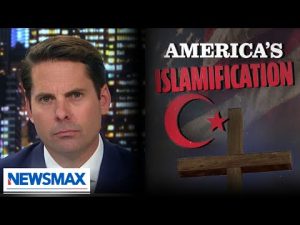In the bustling city of Dearborn, Michigan, a storm is brewing that has caught the attention of many concerned Americans. Recently, in a gathering that has raised eyebrows across the nation, attendees in a local mosque conducted a memorial service for a Hezbollah terrorist. This event has stirred up considerable debate about the intersection of radical Islam and American values, leading some to question whether such sentiments have a place in a country built on freedom and democracy.
The report from a notable news outlet has not gone unnoticed. It brings to light how a small number of extremists openly celebrate terrorism and express their disdain for America. Even more alarming is the presence of individuals on the terror watch list being honored at such events. To many, this behavior seems not only inappropriate but downright un-American. The message seems clear: while the majority of the American populace strives for unity, there exists a vocal minority that challenges the very fabric of society.
Observers have noted that in this era of freedom of expression, the lines between cultural celebration and radical ideology seem to be increasingly blurred. The demonstrations, where chants of “Death to America!” ring out in broad daylight, are interpreted by many as signs of a troubling shift. There’s a sense that societal norms are being tested, and the question arises: how should the nation respond to such overt displays of extremism on its own streets?
One can’t help but wonder whether the media is doing its part in addressing these critical issues. Critics argue that persistently overlooking or downplaying these radical activities aids in their normalization. Some believe it’s time to hold a mirror up to society and ask why these events, which some see as a threat, are allowed to take place without significant public outcry. After all, a nation’s integrity and safety should come before political correctness or reluctance to confront uncomfortable realities.
As conversations surrounding national identity continue to evolve, it’s essential for citizens to engage in them. This includes discussing what happens at the community level, where small gatherings can ripple out into larger implications for the entire nation. Vigilance in local elections and political engagement can be the first steps toward ensuring that loyalty to America remains a priority, particularly as the nation grapples with what it means to be both American and a part of diverse cultural backgrounds. The future might just depend on the choices made today, in a world where every voice counts and every opinion has the potential to shape society.







